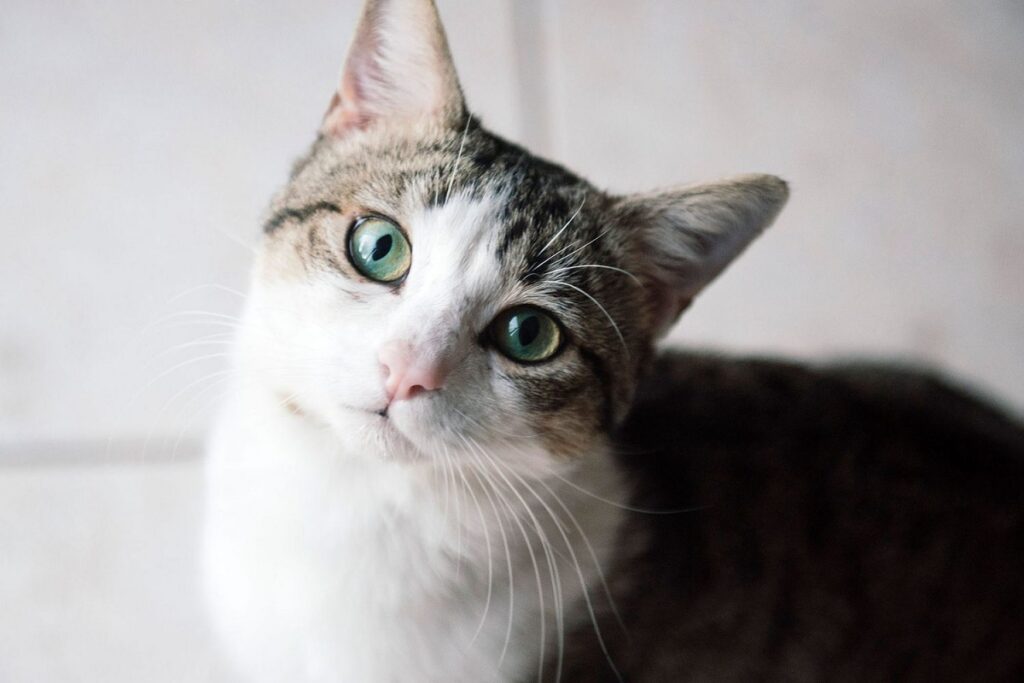Eye infections are common in cats and kittens, often caused by bacteria, viruses, or environmental irritants. While some infections are mild, others can lead to serious complications if left untreated. Recognizing the signs early can help ensure your cat gets the proper care needed for a swift recovery.
Common Causes of Eye Infections in Cats
Bacterial Infections
Bacteria such as Chlamydia and Mycoplasma are common culprits of feline eye infections. These infections typically cause redness, swelling, and thick discharge.
Viral Infections
Viruses like Feline Herpesvirus (FHV-1) and Calicivirus are frequent causes of conjunctivitis in cats. These infections can be persistent and require antiviral treatments.
Fungal Infections
Though less common, fungal infections can cause eye irritation, discharge, and discomfort. Cats in damp or moldy environments are at higher risk.
Allergies & Irritants
Dust, pollen, smoke, or household chemicals can irritate a cat’s eyes, leading to inflammation and excessive tearing.
Underlying Health Conditions
Some systemic conditions, like feline immunodeficiency virus (FIV) or feline leukemia virus (FeLV), can weaken a cat’s immune system, making them more susceptible to eye infections.
Symptoms of Eye Infections in Cats
Redness and Swelling
Inflammation is a primary symptom of eye infections, making the eye appear red and puffy.
Watery or Mucous Discharge
Clear discharge often indicates viral infections, while thick, yellow, or green discharge suggests a bacterial infection.
Squinting or Blinking Excessively
Cats with eye infections may squint or blink excessively due to discomfort or sensitivity to light.
Cloudy or Ulcerated Eyes
Severe infections can lead to corneal ulcers, making the eye appear cloudy or hazy.
Behavioral Changes
Infected cats may become less active, rub their eyes frequently, or avoid bright light.
How to Treat Eye Infections in Cats
Veterinary Diagnosis and Tests
A vet will examine your cat’s eyes and may take swabs to determine the cause of the infection.
Prescription Medications
Antibiotic eye drops, ointments, or antiviral medications are commonly prescribed for bacterial and viral infections.
Home Remedies and Care
Mild infections can be managed with warm compresses, saline eye washes, and immune-boosting supplements.
Cleaning Your Cat’s Eyes Properly
Gently wipe away discharge using a damp cotton ball or soft cloth. Avoid using human medications unless prescribed by a vet.
Preventing the Spread of Infection
If you have multiple cats, isolate the infected one and wash your hands after handling them to prevent spreading the infection.
Preventing Eye Infections in Cats & Kittens
Regular Eye Checkups
Routine veterinary visits help catch early signs of infections before they become severe.
Keeping a Clean Environment
Regularly cleaning your cat’s bedding, litter box, and food bowls reduces exposure to bacteria and irritants.
Strengthening Your Cat’s Immune System
A well-balanced diet, hydration, and supplements like lysine can help prevent infections.
Managing Allergies and Irritants
Keep your home free from smoke, dust, and harsh chemicals to minimize irritation.
Vaccination Against Viral Causes
Vaccinating your cat against feline herpesvirus and calicivirus can reduce the risk of infections.
When to See a Vet for an Eye Infection
Persistent Symptoms
If symptoms persist for more than a few days despite home care, a vet visit is necessary.
Vision Loss or Severe Pain
If your cat is bumping into objects or showing signs of severe discomfort, seek emergency care.
Recurrent Infections
Frequent eye infections may indicate an underlying condition that needs further investigation.
Eye Injury Accompanied by Infection
If your cat has a scratch or injury on their eye along with signs of infection, immediate medical attention is required.
Kittens with Eye Infections
Young kittens are more vulnerable to infections and require prompt treatment to prevent complications.
Conclusion
Eye infections in cats and kittens can range from mild to severe, but early detection and proper care can prevent long-term complications. Regular checkups, a clean environment, and vaccinations can help reduce the risk of infections. If your cat shows persistent or worsening symptoms, always consult a veterinarian for the best course of action.
FAQs
1. Can eye infections in cats heal on their own?
Mild infections may resolve without treatment, but it’s best to consult a vet to prevent complications.
2. How can I tell if my cat’s eye infection is serious?
If there’s thick discharge, swelling, or your cat’s behavior changes significantly, seek veterinary care.
3. Are certain cat breeds more prone to eye infections?
Yes, brachycephalic breeds like Persians are more susceptible due to their facial structure.
4. What home remedies can help with mild eye infections?
Warm compresses and saline rinses can help soothe irritation, but always check with a vet first.
5. Can I use human eye drops for my cat’s eye infection?
No, human eye drops can be harmful to cats. Always use medications prescribed by a veterinarian.

